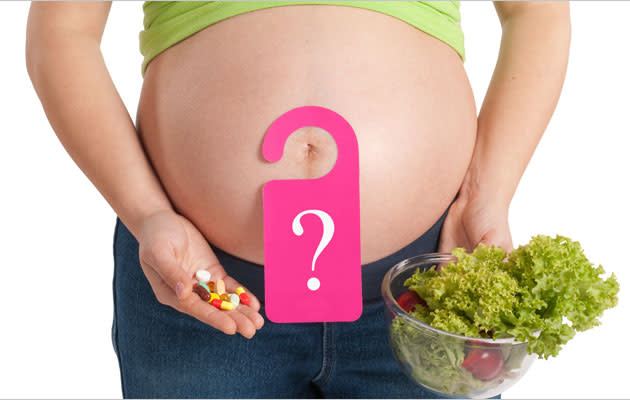 Fit to Post Health
Fit to Post HealthWhat you should know about ‘eating for two’

Meaning well, some women take the expression "eating for two" quite literally during their pregnancy. In reality, pregnant mothers only need an extra 300 kcal per day from the second trimester onwards, says Jenette Yee, dietitian at the Department of Nutrition and Dietetics of KK Women's and Children's Hospital.
This extra need can be met quite easily by ensuring that the three main meals are taken, along with an additional one or two snacks in a day.
Eating for two doesn't increase the chances of giving birth to a healthier baby, notes Yee. What's more, the risk of gaining excessive weight from over eating may increase the risk of complications such as gestational diabetes.
"If the excessive weight gained during pregnancy is not lost after delivery, it may lead to a higher risk of weight-related complications later in life such as Type 2 diabetes, high blood pressure, and heart disease," adds the dietitian.
Related article: The dangers of pregnancy diabetes
Proven and unproven pregnancy 'food rules'
One of the most common dietary mistakes is avoiding or eating excess amounts of certain foods, due to variable food and other beliefs related to pregnancy. These "food rules" vary when you speak to different people. Many pregnancy food beliefs have no scientific basis, and may not be necessary unless it is scientifically proven to cause an effect on health of mother and baby.
Due to cultural practices and generational differences, pregnant mothers may still follow the traditional "food rules", provided the overall diet is balanced, says Yee. For example, you may avoid eating pineapple so long as you are eating other fruits to obtain your fibre, vitamins, minerals and phytochemical needs.
Related video: How to prepare for your pregnancy
Foods to avoid during pregnancy
Below are a list of food that should be avoided during pregnancy and the reasons for avoiding them.
Foods to avoid | Reason |
1. Soft cheeses e.g. Brie, Camembert and liver pates | These foods may be contaminated with the bacteria Listeria. Listeria infection may lead to miscarriages and stillbirths. Processed and hard cheeses are however, safe to consume. |
2. Raw and undercooked poultry, eggs and seafood | These foods should be cooked thoroughly before eating as they may be contaminated with bacteria, which can cause food poisoning. |
3. Large deep-sea fishes like shark, swordfish, king mackerel and tilefish | These fishes may contain methylmercury, a heavy metal that is toxic to the developing foetus' neurological system. |
4. Unwashed salads | There may be bacterial contamination from soil, which can cause food poisoning. |
5. Alcohol | Alcohol should be avoided during pregnancy, as it can be passed via the placenta, and may directly affect the development of the foetus. Common adverse effects include low birth weight, mental retardation, facial deformities and heart problems. |
6. Herbal products | Not recommended, as there are not enough scientific research studies to make any recommendations for their use during pregnancy. |
"Eating for two" is featured on Health Xchange's "Ask the Specialist" Q&A session this month (October 2011). Seize this opportunity to ask your questions online and get them answered — for free! Visit HealthXchange.com.sg, Singapore's trusted health and lifestyle portal.
This article was written by the Health Xchange Editor, with expert input from the Dept of Nutrition and Dietetics at KK Women's and Children's Hospital.
Health Xchange's articles are meant for informational purposes only and cannot replace professional surgical, medical or health advice, examination, diagnosis, or treatment.

